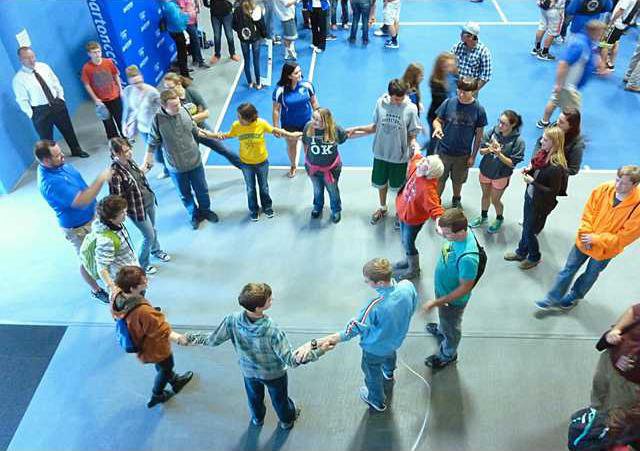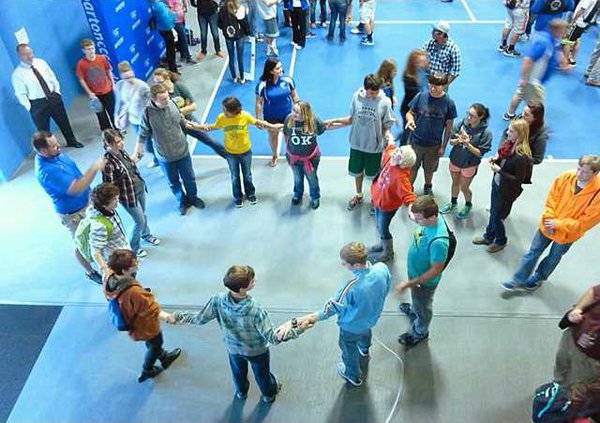Taking selfies was encouraged Thursday at Barton Community College, where some 400 guests – most of them high school students – attended the 12th annual Jack Kilby Science Day.
It’s hard to concentrate on adding a measured amount of dye to a chemical compound without making a funny face, as students discovered when doing an electrophoresis experiment under the direction of Barton instructor Colleen Hampton. And other hands-on science lessons had students tasting concoctions or getting their blood type identified – creating more photo opportunities.
Students and teachers from 23 high schools attended the free event, named after the inventor of the microchip, Jack Kilby, who grew up in Great Bend and went on to win the Nobel Prize for his invention. Some traveled from as far away as Leoti, Scott City and Medicine Lodge, but area schools were also represented.
The keynote speaker was Raphael Grau, acting manager of external integration for the International Space Station Program at NASA’s Lyndon B. Johnson Space Center in Houston, Texas. He said those watching the sky above Great Bend Friday night may see the Space Station passing overhead at 7:27 p.m.; it will be gone in about 6 minutes. That information is available on NASA’s “Spot the Station” website, http://spotthestation.nasa.gov/.
Fifteen countries were involved in building the International Space Station, which has been continuously occupied by humans for nearly 15 years; 91 countries have done science and education projects based on the space station. It circles the Earth every 90 minutes, so the astronauts can experience 16 sunrises and 16 sunsets a day.
“The reason why we’re in space is a change of perspective,” Grau said. Experiments change in zero gravity, and there are unique problems to solve. Today’s high school students will be among the future NASA employees who create new systems to solve the problems of manned missions to Mars.
“We need all kinds (of people) at NASA,” he said, noting the agency employs doctors, lawyers and accountants as well as engineers and scientists.
The International Space Station is scheduled to remain operational at least until 2024, Grau said.
After his lecture, students participated in two workshops, choosing from a variety of topics. Many included some hands-on experimentation in areas of life sciences or physical sciences. For example, Criminal Justice instructor Melissa Stevens talked about forensic science and had students isolate DNA using household items. Barton instructor Dr. Kristen Hathcock helped students discover how to determine acids and bases of common household products.
At noon the students were treated to pizza and an academic carnival in the Kirkman Gymnasium. There was even a photo backdrop with props, providing one last opportunity to memorialize the day.
Shocking Science! BCC hosts Jack Kilby Day





